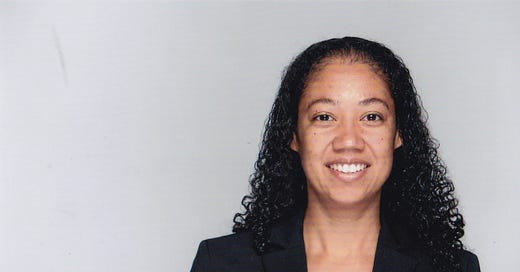I’m thinking a lot about liberation these days. Perhaps because we just celebrated Bandi Chor Divas, in which Sikhs around the world remember Guru Hargobind’s imprisonment, his release from prison, and his insistence on ensuring the release of dozens of others who were wrongly imprisoned.
Perhaps I’m thinking about liberation because I’m teaching a course this semester on Tibetan Buddhism, and we talk about enlightenment constantly. Perhaps my ruminations on liberation are a reaction to our global political landscape, where rights and freedoms have been declining, and it appears that this trend will continue under a nexus of new authoritarian leadership fueled by right-wing religious nationalisms.
I’m guessing it’s a combination of all of these factors, and more, that have me appreciating my own rights and freedoms, and wondering about what might change in the months and years to come. That’s why I’m so grateful for this conversation about Black liberation and Buddhist liberation with my friend and colleague, Rima Vesley-Flad.
There’s so much I could say about Rima, including what I’ve learned through conversations with her and watching how she carries herself through the world. But more than anything, I’ve been touched to hear how much Rima is loved by students at Union Theological Seminary, where I now teach, and where Rima taught previously. Their faces break into a smile anytime Rima is mentioned — and I know how special that kind of warmth and love is.
I loved my conversation with Rima, which I’ll share a portion of below. To listen to our full conversation on Wisdom & Practice, feel free to click here.
Simran Jeet Singh: You know, there's, there's a real tension between focusing on the self and and caring for other people. It’s like the spiritual bypassing that you were describing. You go work on yourself and you meditate, and you don't worry about other people. It's all internal and self-reflective. And what's interesting to me is it sounds to me like you're saying the opposite.
I wonder if you could talk a little bit about how you understand the importance of caring for others, within this tradition.
Rima Vesely-Flad: There's a sense that we got where we are because we stand on the shoulders of our forebears who made a way out of no way. And so there is a sense of honoring ancestors and spiritual lineage but also Black folk who fought segregation. I mean, those folks, our forebears, moved forward because they cared for their descendants—and I'm one of them.
So I do think within Black Buddhist communities, there is such an emphasis on honoring ancestors and knowing that we would not be where we are had they not fought so incredibly hard to make sure that we had a way forward. That understanding is deeply organic. It's in who we put on our altars. It's who we quote in our Dharma talks. It’s who we summon into the space.
There’s a sense of fortitude. There's a sense of deep respect and gratitude. And there's a sense that we not only need to care for each other, but we also then will be the ancestors of our descendants, and we want to create a context and an environment in which our descendants can thrive.
Simran: So I want to run a statement by you and see how you would respond to it, or if you would nuance it.
Theology, as ideas, doesn't always account for the realities of lived experience.
Rima Vesely-Fald: I think the way I’m built is in such a way that I love ideas as they stand on their own. You know, ideas are living for me. I'm in my head 99. 9 percent of the time. And, you know, just kind of in this world of thinking and processing and examining. So ideas are very powerful for someone like me.
But it's the ways in which we connect with other beings that I think also matter so much. So it's not enough to live in my head. I need touch, I need connection, I need conversation. And it is true that when I’m in a community in which ideas are received but the ways in which they're interpreted is really alienating or perhaps even triggering, it can be really tough. Like, the ideas lose their gloss, if you will. So I think in many predominately white Buddhist communities where there’s such a focus on enlightenment and oneness and not an acknowledgment of particular kinds of suffering, you know, I can be disenchanted. It can be really disorienting.
It's not to say that the ideas are less provocative or compelling, but also with regard to live experience, it can be really off putting. And it's something I think that Black Buddhists, I would say Asian and Asian American Buddhists as well, really grappling with in the United States where the vast majority of Buddhist institutions are run by white Buddhists, who don't necessarily acknowledge are highly racialized and racist environments. And they really want to focus on attaining enlightenment, what we call spiritual bypassing. And it's something that I have also witnessed, especially in refuting the lived experiences of oppression of people of color in Dharma communities. And that is absolutely pervasive.
To listen to the full conversation with Rima Vesely-Flad, click here.





I find that your thoughts have become a necessary part of my day. Namaste my friend